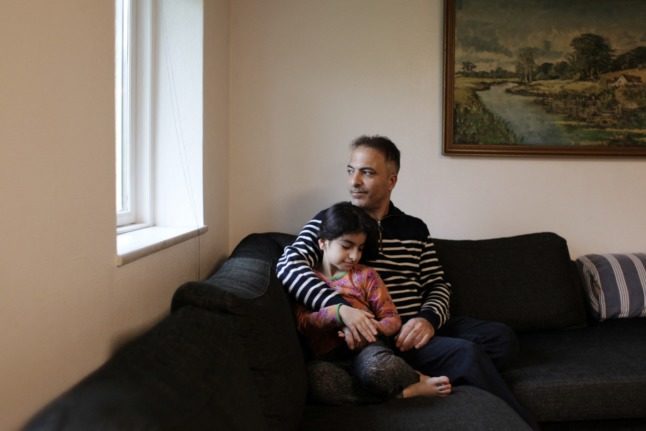About 117 children with German citizenship are thought to be in Syria.
“The autonomous region handed over four children from IS families to a delegation from Germany,” said Fanar Kaeet, a foreign affairs official with the Kurdish authorities.
They included a boy and two sisters who had lost both parents, and a fatherless girl infant who was repatriated for health reasons, Kurdish authorities said.
All are under 10 years old, they said.
READ ALSO: Islamic State children repatriated to Germany from Iraq
A spokeswoman for the German Foreign Ministry confirmed the handover to staff from its consulate in neighbouring Iraqi Kurdistan at the Simalka border crossing.
“I can confirm that four children who were in custody in northern Syria were able to leave Syria,” she said.
“The children were received on the Iraqi-Syrian border by staff of the consulate in Arbil and will be given to family members,” the spokeswoman said.
“From there, the children and their family members will, we believe, travel to Germany.”
READ ALSO: 'I was a little bit naive': German woman flees IS
According to Foreign Minister Heiko Maas, the German government is working under difficult conditions to bring more children of IS fighters to Germany.
“We will work to ensure that more children can leave Syria,” Maas said in Berlin on Monday.
Maas had stressed that the children cannot be held responsible “for the deeds of their parents, and that is why we want to help”.
He said in each case there were difficult questions which had to be answered. Maas also thanked those that had made it possible to help the four children depart Syria “under such difficult and dangerous circumstances”.
Fight against IS
Syria's Kurds have spearheaded the US-backed fight against IS in Syria, and in March expelled the extremists from their last patch of territory in the war-torn country's far east.
Even as they fight remaining sleeper cells, thousands of alleged IS fighters and family members are being held in their custody.
These include hundreds of suspected foreign fighters in their jails, and thousands of their alleged family members in overcrowded camps.
Western countries have been largely reluctant to repatriate their nationals.
But France and Belgium have brought a handful of orphans home, while the United States last year repatriated a woman with her four children.
Kazakhstan, Uzbekistan and Kosovo have repatriated dozens of women and children.
IS overran large parts of Syria and Iraq in 2014, proclaiming a “caliphate” there, but offensives in both countries have seen them lose that territory.
A dozen children of alleged jihadist fighters have been repatriated from Iraq to Germany since March



 Please whitelist us to continue reading.
Please whitelist us to continue reading.
Member comments